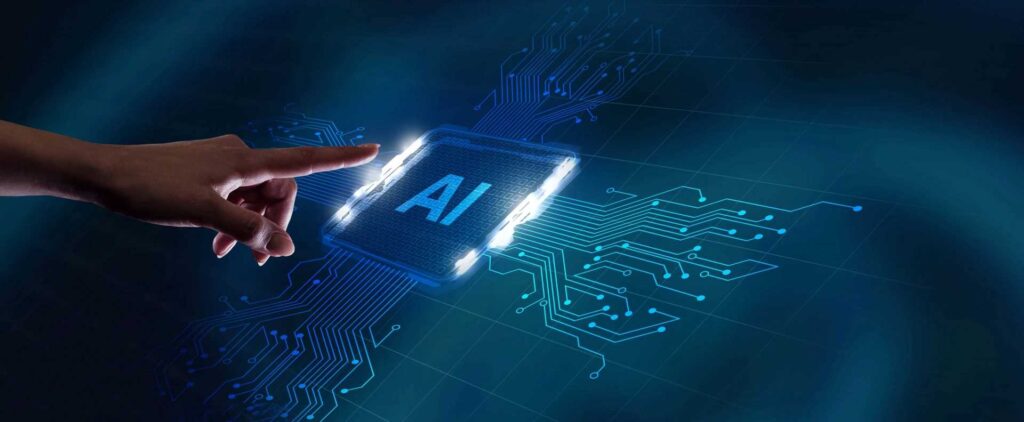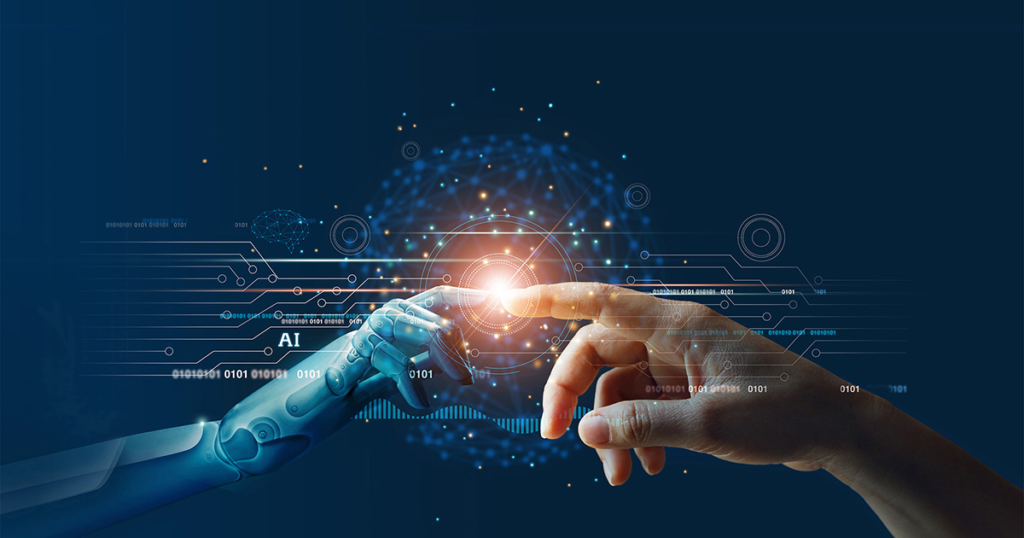Is ‘Artificial Intelligence (AI)’ a threat to humanity?

We are currently living in a time of rapid change. The topic of artificial intelligence (AI) is dominating technology discussions. Some people are concerned about the impact of AI, while others feel comfortable with it. However, the majority of people are worried about how it will affect their jobs and work environment.
The consequences of their actions could be severe, affecting both their career and their life trajectory. Christopher Strachey developed the first successful AI computer program back in 1951 at the University of Manchester, and ever since, AI has been utilized for a variety of purposes. It is clear that AI is becoming increasingly prominent, and it will continue to play a significant role in industries such as transportation, manufacturing, healthcare, education, media, and customer service.
“A job will be replaced by AI, because AI can, within the routine task, learn to optimize itself. And the more quantitative, the more objective the job is—separating things into bins, washing dishes, picking fruits, and answering customer service calls—those are very much scripted tasks that are repetitive and routine in nature. In a matter of five, 10, or 15 years, they will be displaced by AI.”
During a lecture at Northwestern University, AI expert Kai-Fu Lee explained the warning
These are concise fields regarding the impact of AI on jobs and careers. It is estimated that a quarter of current jobs may be entirely replaced by AI, and two-thirds of all jobs, equating to around 300 million jobs, will be affected by AI automation in varying degrees. The World Economic Forum predicts that approximately 85 million jobs will be replaced by artificial intelligence by 2025. With the growing acceptance of autonomous robots and generative AI, virtually every industry will eventually undergo transformation through the use of artificial intelligence.

With the help of AI technology, people can experience better healthcare, safer modes of transportation, and access to products and services that are tailored to their needs, at a lower cost and with increased longevity. Additionally, AI can provide easier access to information, education, and training. Implementing AI in public services can also lead to cost reduction and introduce new possibilities in areas such as public transportation, education, energy, waste management, and even product sustainability.
The following industries of the future will be built on the foundations of digital technology, data science, and artificial intelligence.

- Data Scientist: Data scientists are a new generation of data analytics experts, already among the most in-demand professions for AI. They analyse data to understand behaviours, trends, and complex inferences and uncover hidden insights that help modern technology companies make smarter business decisions.
- Artificial Intelligence And Machine Learning Engineers: In most cases, a machine learning engineer pairs up with a data scientist to synchronize work, these two professions work closely together and are among the most in-demand professions.
- Data Labelling Professionals: With the increasing importance of data collection in almost all industries, the demand for “data labelling” professionals could increase in the future data labelling could become a blue-collar job in the era of Artificial Intelligence and, therefore, one of the most demanded professions.
- Hardware Specialists For Artificial Intelligence: Another job that will grow into one of the most in-demand professions in the AI world is the industrial job responsible for building AI hardware, such as GPU chips. Big tech companies are already taking steps to build their specialized chips for this purpose. Intel is building a chip designed specifically for deep learning and machine learning.
Threatened in Jobs by AI

- Jobs Most Threatened by AI: Content Marketers, Beat Journalists, Graphic Artists, Warehouse Workers, Programmers and Coders, Lawyers, Radiologists and Medical Diagnosticians.
- Jobs Least Threatened by AI: Skilled Tradespeople, Construction, Food Preparation, and Serving, Psychology, and Counselling, Elementary School Teachers, Professional Athletes, and Coaches, Truly Creative thinkers like Entrepreneurs, inventors, authors, and actors — those kinds of jobs will undoubtedly use generative AI as a tool, ChatGPT by definition cannot “think outside of the box.” Ford says that “genuinely creative jobs” are the safest in the AI age.
Let’s discuss the potential threat of AI. The renowned physicist Stephen Hawking once theorized that if AI becomes capable of designing superior AI without human intervention, the resulting machines could surpass human intelligence by a significant margin. This could lead to the widespread dissemination of false information and propaganda, or it could result in the loss of numerous white-collar jobs.
As per the recent report by Challenger, Gray, and Christmas, around 4,000 people lost their jobs in May 2021 due to the implementation of artificial intelligence (AI). However, if not executed with caution, AI may result in biased decisions based on factors like age, gender, and ethnicity, affecting crucial areas such as hiring, firing, loans, and even legal proceedings.
The rise of AI technology could potentially infringe on people’s rights to privacy and data protection. For instance, it can be utilized in face recognition systems or to track and profile individuals online. Moreover, AI has the capability to combine different pieces of personal information to create new data, which may produce unexpected outcomes.

It can also be utilized to generate highly authentic videos, audio, and images, commonly referred to as deepfakes, which can pose financial risks, damage reputations, and impact decision-making. These developments could result in division and polarization in public discourse and even manipulate elections, which poses a threat to democracy. We can only anticipate the future of AI and its implications.
The use of artificial intelligence has immense potential in driving business growth, automating manufacturing processes, and providing valuable insights. Various industries, such as logistics, manufacturing, and cybersecurity, have already started to incorporate AI into their operations. Even small businesses are making significant strides in developing speech recognition software for mobile devices. It’s important to recognize that AI is becoming an integral part of our daily lives.
Write with us✍?
TeamUgtWorld warmly welcomes everyone! If you have something on your mind that you’d like to write about, we invite you to publish your content on our platform @Ugtworld. To learn more, please click on the link provided below.


